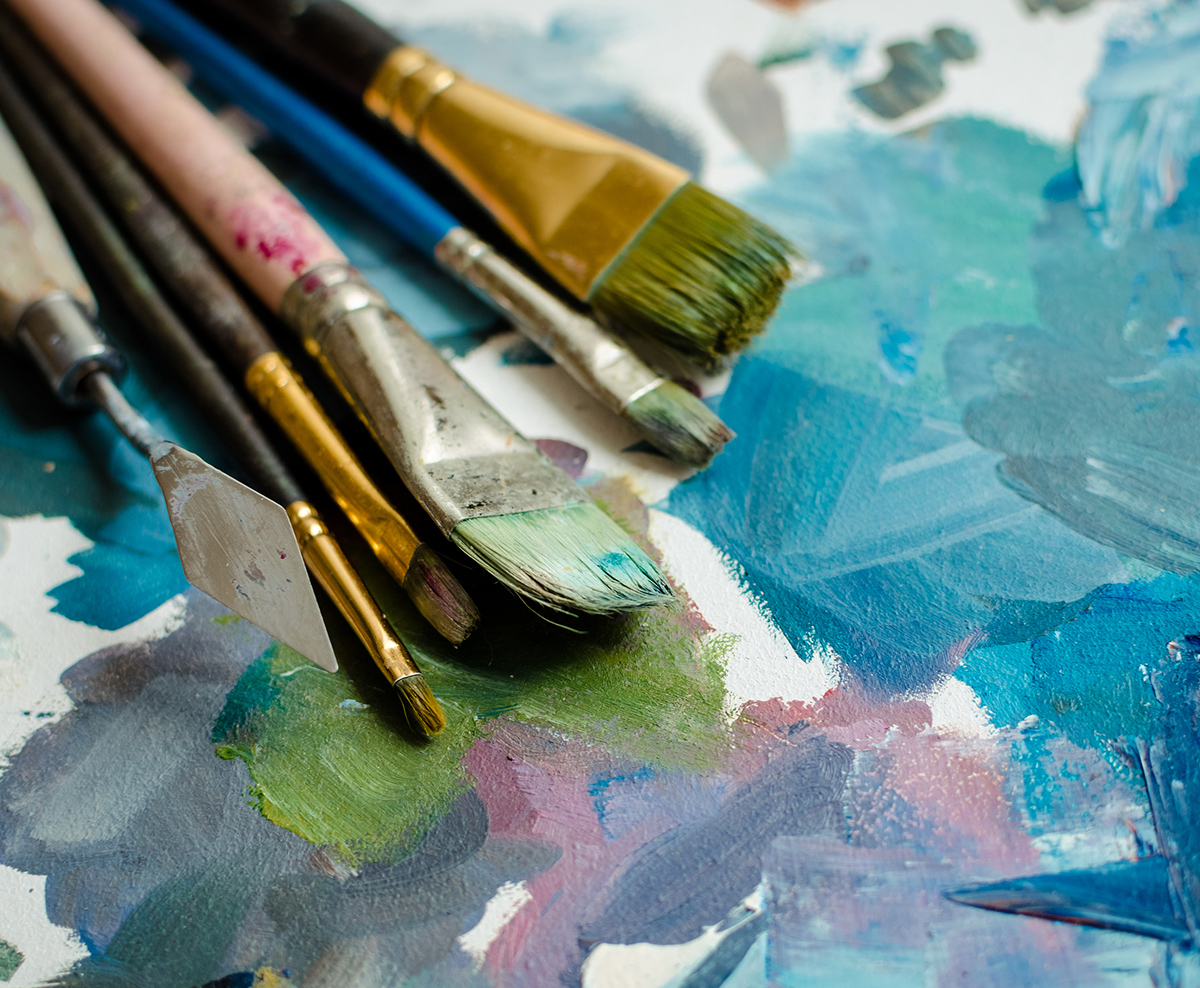Combating Depression with Art Therapy and Creative Endeavors
Over 16 million adults in the United States will face at least one major depressive episode during the course of any given year. That amounts to approximately 7 percent of the U.S. population. The tally doesn’t include people under the age of 18. There are a number of approaches to dealing with depression, including medication and talk therapy. In a good number of cases, a person afflicted with depression can obtain relief, at least to some degree, by engaging in creative pursuits.
Creative Pursuits as Part of Comprehensive Depression Treatment
Taking up a creative pursuit of one type or another is not a recommended standalone course of treatment for depression. Rather, embarking on a creative endeavor of some sort typically is incorporated into a broader, comprehensive course of treatment. For example, a person suffering from depression may participate in talk therapy and some sort of creative endeavor as part of an overall course of treatment.
Keep in mind that creative pursuits and depression treatment can come in two broad modalities. First, a creative activity to aid in addressing depression can be part of a more formal art therapy program. Second, a person battling depression can participate in some type of formal treatment program with a creative pursuit pursued on his or her own in an informal, unstructured manner.
Art Therapy and Depression
Art therapy is defined as a creative means of expression utilized as a therapeutic technique. Art therapy traces its origins in the fields of psychotherapy and art.
Art therapy as a modality to assist in the treatment of depression can have one of two primary focuses. First, art therapy can focus on the creative process of making art. Second, art therapy can involve an interaction between a therapist and patient that focuses on an analysis of artistic expression.
In this day and age, the use of art therapy has expanded significantly beyond its pairing with psychotherapy. From a technical standpoint, art therapy is interconnected with an array of associated treatment modalities that include:
- person-centered
- cognitive
- behavioral
- Gestalt
- narrative
- Adlerian
- family
There are a set of established tenants associated with formalized art therapy as a treatment modality. These are:
- humanism
- creativity
- reconciling emotional conflicts
- fostering self-awareness
- personal growth
Informal Creative Pursuits as an Element of Recovery from Depression
Informal creative and artistic pursuits can also become a beneficial component of an overall treatment program for depression. Indeed, these pursuits can encompass the full spectrum of creative pursuits in all its forms. The spectrum can include visual arts, performing arts, literary arts, and literally any other endeavor that incorporates a creative process of some sort.
A U.S. playwright discussed how embarking on a creative pursuit two decades ago aided him in addressing his own depression and even suicidal ideation. Since pursuing a career in the creative arts, he’s never experienced a major depressive episode. Prior to embarking on a creative or artistic endeavor, in his case writing, he endures chronic depression for several years.
The fact that this individual experienced complete relief from depression for years is an example of an optimal result of informal creative pursuits in addressing depression. The experience of other individuals may not be as consistently positive. However, there is a plethora of cases of individuals who enjoy long-term relief from depression by incorporating the informal pursuit of creative endeavors in their overall treatment efforts. Again, informal is those artistic pursuits independently undertaken outside of formal art therapy.
Examples of Creative Pursuits to Enhance Recovery from Depression
Visual art historically has been the most widely utilized in art therapy. The reality is that visual art provides a broad spectrum of media that readily can be incorporated into a therapeutic protocol. These options include:
- drawing
- painting
- ceramics
- sculpture
- clothing design
- furniture design
Music is another possible artistic pursuit that can be incorporated into an arts therapy program to aid in the treatment of depression. When it comes to music as art therapy, a number of options exist:
- singing
- playing an instrument
- music composition
- lyric writing
- music lessons
The creation of crafts has proven helpful to people suffering from depression. As a consequence, the making of crafts is fairly widely utilized in formal art therapy programs. People involved in craft-oriented art therapy obtain depression relief through the crafting process itself. In addition, more than a few people have been able to parlay their crafting into something of a business through which they sell their creations through online and other venues
Many therapists incorporate journaling into a patient’s treatment program. On some level, journaling can also be considered a form of art therapy. Journaling permits a means for self and creative expression that in and of itself can prove useful in combating depression.
Blogging is yet another avenue that oftentimes fairly can be considered part of art therapy. Blogging bears some similarities to journaling. In addition, it provides a vehicle through which a person laboring under depression can more broadly share his or her experiences, thoughts, and even creative ruminations with others. This can prove beneficial to the patient but also to others who may face similar issues.
While there is absolutely nothing wrong with a person embarking on a creative pursuit on his or her own right now in hopes of obtaining at least some relief from depression. With that said, if a person is afflicted with chronic or major depression, he or she should seek professional assistance.
In the final analysis, art therapy or the informal pursuit of a creative objective may become an important part of a comprehensive treatment program for depression. It truly may become an important part of that treatment program. Nonetheless, other modalities like talk therapy or even medication may need to be included in an overall depression treatment program.




